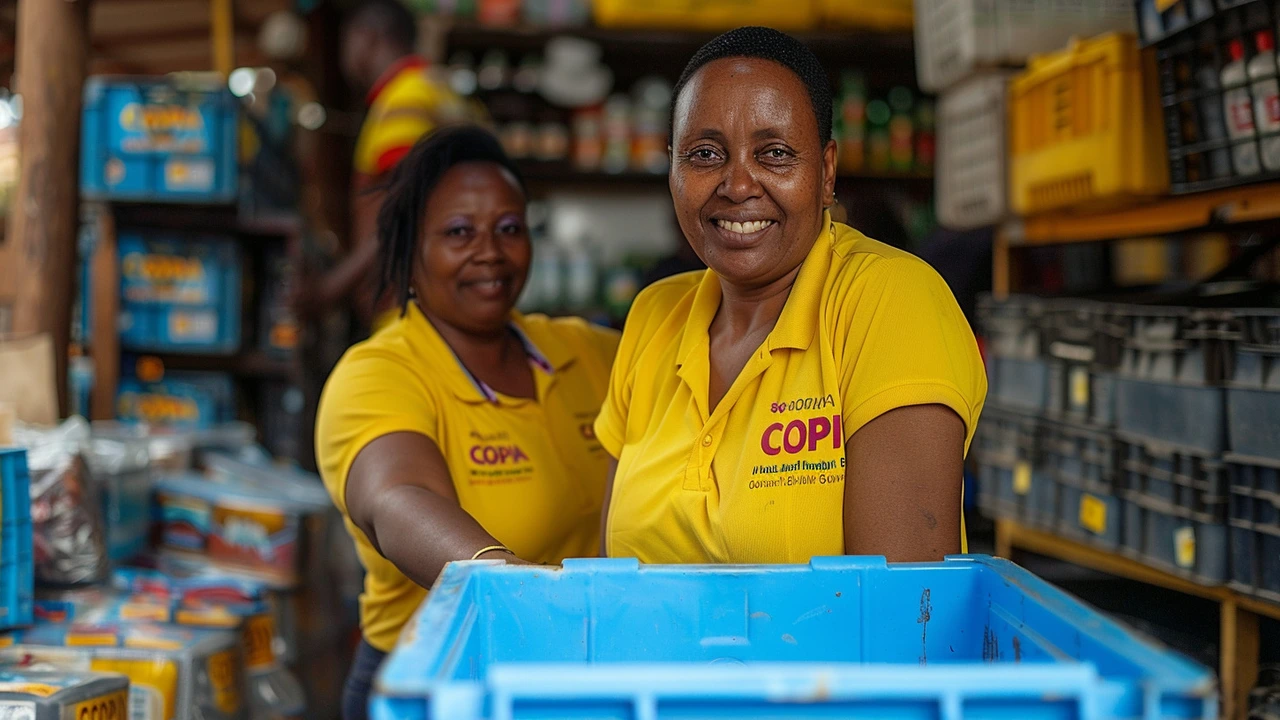Copia Global Faces Financial Crisis: Layoffs and Possible Shutdown
Copia Global, a trailblazing e-commerce startup based in Kenya, finds itself at a critical juncture. The company, once heralded as a beacon of innovation in the African e-commerce landscape, is now facing severe financial uncertainty. In a recent internal memo, CEO Tim Steel revealed that Copia may need to lay off over 1000 employees or, in the direst scenario, shut down operations entirely. This potential course of action comes despite the substantial funding the company has received, including a significant $50 million Series C round in 2022 and a $20 million extension as recently as December 2023.
Internal Struggles and Cost-Cutting Measures
The revelation of Copia's struggles was laid bare in an internal communication from Tim Steel. Highlighting the urgent need to cut costs, Steel depicted a company grappling with a harsh financial reality. The potential layoff of over 1000 employees is viewed as the first, albeit painful, step in attempting to stabilize the business. If these measures prove insufficient, the company might face the grim necessity of shutting down entirely.
These announcements came as a shock to many, considering Copia's previous optimistic outlook fueled by substantial investment rounds. The Series C funding alone was seen as a significant vote of confidence in Copia's business model, which aims to serve remote and underserved areas in Kenya through an innovative agent network. Despite these efforts, the company appears to be buckling under the weight of its operational expenses and external economic pressures.
A Challenging Year: Layoffs and Regional Pullbacks
Copia's struggles are not new developments but part of a broader trend that has been affecting the company throughout 2023. Earlier in the year, Copia had already laid off over 700 employees and pulled back from its operations in Uganda. These moves were early indicators of the trouble brewing within the organization. Despite these cost-saving attempts, the company's challenges seem to have deepened, leading to the current dire situation.
This pattern of layoffs and regional pullbacks could be seen as strategic retrenchment. However, it poses significant risks to the company's long-term viability and reputation. Copia's initial expansion beyond Kenya's borders into Uganda was seen as a critical growth strategy. The subsequent withdrawal from the Ugandan market suggests that the financial burden and operational complexities were perhaps underestimated.
Funding Drought and Market Realities
While Copia's troubles are severe, they are not isolated. The entire Kenyan e-commerce sector has been grappling with similar challenges. High-profile startups such as Wefarm and Zumi have also shuttered their operations, citing funding droughts and tough market conditions. Experts attribute these closures to a range of factors, including the viability of business models, lack of industry data, infrastructural challenges, and difficulties in earning customer trust.
The current economic downturn and tight capital markets have exacerbated these issues. For startups dependent on continuous rounds of funding to fuel growth, the drying up of investment capital has been a death knell. Copia's case shows how even well-funded startups are finding it increasingly difficult to navigate these turbulent waters.
Analyzing Copia’s Business Model
Copia was founded in 2013 by entrepreneurs Tracy Turner and Jonathan Lewis with a mission to revolutionize retail for underserved communities in Kenya. The platform operates through a network of agents who help customers in remote areas order goods and then deliver them. This model aimed to bridge the gap between urban suppliers and rural consumers, offering a unique solution to the logistical challenges faced in reaching these markets.
However, despite its innovative approach, Copia has struggled with high operational costs. Maintaining an extensive network of agents and ensuring timely deliveries in remote areas come with significant expenses. These costs, when coupled with external economic pressures such as inflation and currency fluctuations, have placed immense strain on the company's finances.
Broader Implications for Kenyan E-commerce
The difficulties faced by Copia are reflective of broader challenges within the Kenyan e-commerce sector. The initial enthusiasm and investor confidence that marked the early years of many e-commerce startups in Kenya have waned in the face of persistent financial and operational hurdles. The lack of reliable industry data complicates efforts to make informed business decisions, while infrastructural deficiencies and logistical nightmares continue to plague the sector.
Customer trust remains another critical issue. In many cases, consumers in Kenya are wary of online transactions, often due to past negative experiences or fear of fraud. Building and maintaining this trust requires consistent and excellent service, which can be particularly challenging for startups operating with limited resources.
Looking Forward: Copia's Next Steps
In the face of these daunting challenges, Copia is left with a few difficult choices. The potential layoffs or complete shutdown would be a significant blow not only to its employees but to the broader vision that Copia represents. It would also be a stark reminder of the harsh realities facing startups in developing economies, where the path to sustainability is fraught with obstacles.
Copia's situation underscores the need for a more supportive ecosystem for startups. This includes not only financial backing but also infrastructural support, robust market data, and regulatory frameworks that encourage innovation and growth. For now, the fate of Copia hangs in the balance, with the hope that medium to long-term changes in the business climate might pave a way for recovery.
As of now, Copia continues to serve its customers and remains operational, though the future looks uncertain. Stakeholders, including employees, investors, and customers alike, are watching closely to see how the company navigates these trying times. For Copia and many other startups in Kenya, the coming months will be crucial in determining their survival and ability to thrive in a challenging economic landscape.
Conclusion
In conclusion, Copia Global's current predicament serves as a critical case study in the challenges facing e-commerce startups, particularly in emerging markets. The necessity to drastically cut costs, including the painful possibility of laying off over 1000 employees or even shutting down, highlights the intense pressure on businesses to adapt or perish. As Copia navigates these tumultuous waters, the broader implications for economic growth, entrepreneurship, and consumer trust in Kenyan e-commerce hang in the balance.










Write a comment